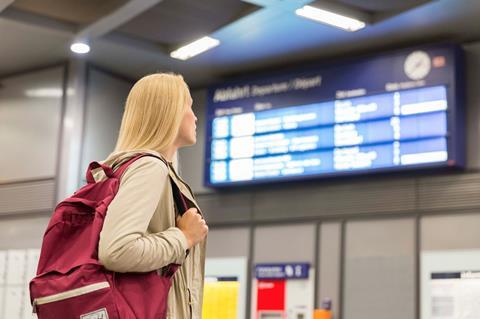
GERMANY: Rhein-Ruhr transport association VRR is to implement its largest-ever fares reform in March 2025, aiming to clear the ‘tariff jungle’ by eliminating 500 of the current 650 ticket types and reducing the number of price levels from seven to three.
VRR is committing to the national Deutschlandticket subscription pass for regular users, with less frequent travellers to use Eezy smart ticketing with price calculated based on straight line distances.
VRR reports that more than 95% of regular passengers have switched from existing subscriptions to the Deutschlandticket since it was introduced in May 2023, with 60% choosing a digital version. Sales of tickets for occasional users have fallen by 35% in the same period.
Around 90% of sales are now distributed across five tickets: the Deutschlandticket, the EinzelTicket, the 4erTicket, the Semesterticket and the Ticket2000. Apart from journeys with the Deutschlandticket, passengers in the VRR area mainly travel in price categories A (within a town) and B (to the neighbouring town or the immediate surrounding area).
‘The Deutschlandticket is here to stay. It is the greatest tariff achievement in public transport in recent decades’, said VRR board spokesperson Oliver Wittke on September 2. ’The previous price levels and areas of validity of the VRR tariff no longer match current customer demand and have become partly obsolete with the new ticket offer. We are therefore adapting the VRR tariff range to the changes in the market.’
Wittke said ‘for 90% of customers, travelling by bus and train will be cheaper than before. Sometimes it will be more expensive because structures change or products are no longer available. But one thing is certain: suitable tickets will be available for all travel purposes and the tariff landscape in the VRR [region] will be simpler.’
Uwe Schneidewind, head of VRR and Mayor of Wuppertal, said ‘as one of the largest transport associations in Europe, we are planning long-term with the Deutschlandticket and Eezy. The tickets are simple, convenient, available digitally and attractively priced. We want to secure these advantages for our customers in the long term, because they lower the barriers to access to public transport and thus make it easier to use buses and trains in the VRR, in Nordrhein-Westfalen and in Germany.’



